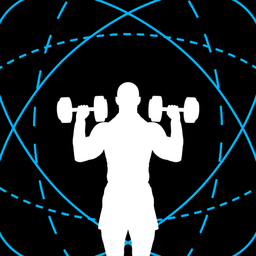How Many Calories Should You Be Eating When Bulking?
You're bulking. Does that mean you're free to eat however many calories your heart desires and/or you can stomach? It depends. Learn more here.

Huh, that’s easy. The answer is “as many as possible”, right?
No 🙅
You can’t go ham just because you’re bulking
To maximize muscle growth, research suggests that you’ll need to eat in a calorie surplus (i.e., calories in > calories out).
But more isn’t always better.
There are 2 studies illustrating precisely what could go wrong when you start behaving like Pac-Man in the name of bulking.
The researchers randomly assigned participants who were performing resistance training 3 days weekly to 3 groups: 1) maintenance energy (MAIN), moderate (MOD), and high (HIGH) energy surplus groups.
After 8 weeks, they found that participants who’d reported faster rates of body mass gain — i.e., in the HIGH group — didn’t see better improvements in muscle thickness and/or 1-RM than those in the MOD or MAIN groups.
Meaning?
Larger calorie surpluses primarily increase body fat. Instead of what you want, which is muscle mass. *An image of The Scream comes to mind*
Participants were randomly assigned to 2 groups: 1) “fast” bulk and 2) “slow” bulk.
Those in the fast bulk consumed ~600 calories more daily than those in the slow bulk. Given that, it’s only natural to think that the former would have put on wayyyy more muscle mass than the latter.
Alas! Those who went through the aggressive bulking phase did not experience higher lean mass gains.
Heart-wrenchingly still, they actually gained 5x as much fat!
OK … so, what’s the right number of calories you should eat when bulking to maximize hypertrophy while minimizing fat gain?
We’ll tell you in a bit.
But first, some good news if you’re a rank novice in the gym.
Unless! It’s your first time bulking
For those who’ve never seriously strength trained — and, by proxy, never bulked before — it appears you’re immune to the unhinged fat gain associated with an aggressive bulk.
Yes, really.
Just take a look at this 2002 study published in the Journal of Sports Medicine and Physical Fitness.
In a group of untrained lifters, the researchers found nearly exclusive lean mass gains after 8 weeks of training when the participants consumed a large energy surplus (resulting in an average 3 kg increase in weight).
Here’s how many calories you should eat when bulking
So. In light of *waves hands in the air* all that being said, how many calories you should eat when bulking depends on your training experience.
If you’re ...
New to the gym
Feel free to floor the “calorie pedal”.
Be as aggressive as you can stomach during this golden, once-in-a-lifetime opportunity to funnel nearly all your calories into pure muscle mass.
Note: for health reasons, it’s probably best to limit your bulking to gaining no more than 2% of your body weight monthly. And, of course, as with all good things, this almost 100% calorie-to-muscle conversion won’t last forever.
You will put on fat at some point.
When that happens, you’ll probably have to accept that you likely won’t be able to force-feed the bulking process much further.
This is when you may consider dialing back the calories or transitioning to a cut altogether.
Resistance trained
While you can’t mine the newbie bulking gains, you probably have lots of room to go before hitting your genetic potential for muscle growth.
So, to close the gap without running the risk of looking like the Michelin Man, you’d want to work with a modest calorie surplus.
Just 10% to 15%.
So, if you have a maintenance calorie of 2,000 calories, your bulking diet should see you eating between 2,200 and 2,300 calories.
It’s not just about the calories
Here’s the truth. How many calories you should eat is just 1 piece of the bulking puzzle.
For optimal results, you’ll also need to account for diet quality. Or, in other words, where those calories come from.
Because your goal is hypertrophy, you’ll need to feed your body with enough protein — the building block of muscles (technically speaking, amino acids are the building blocks, but you get what we mean 🤷).
As for how much protein to aim for, research suggests a minimum of 1.6 grams per kilogram of body weight.
Weigh 60 kg? This means you should get at least 96 grams of protein daily.
And if that’s a struggle for you, these articles may come in handy:
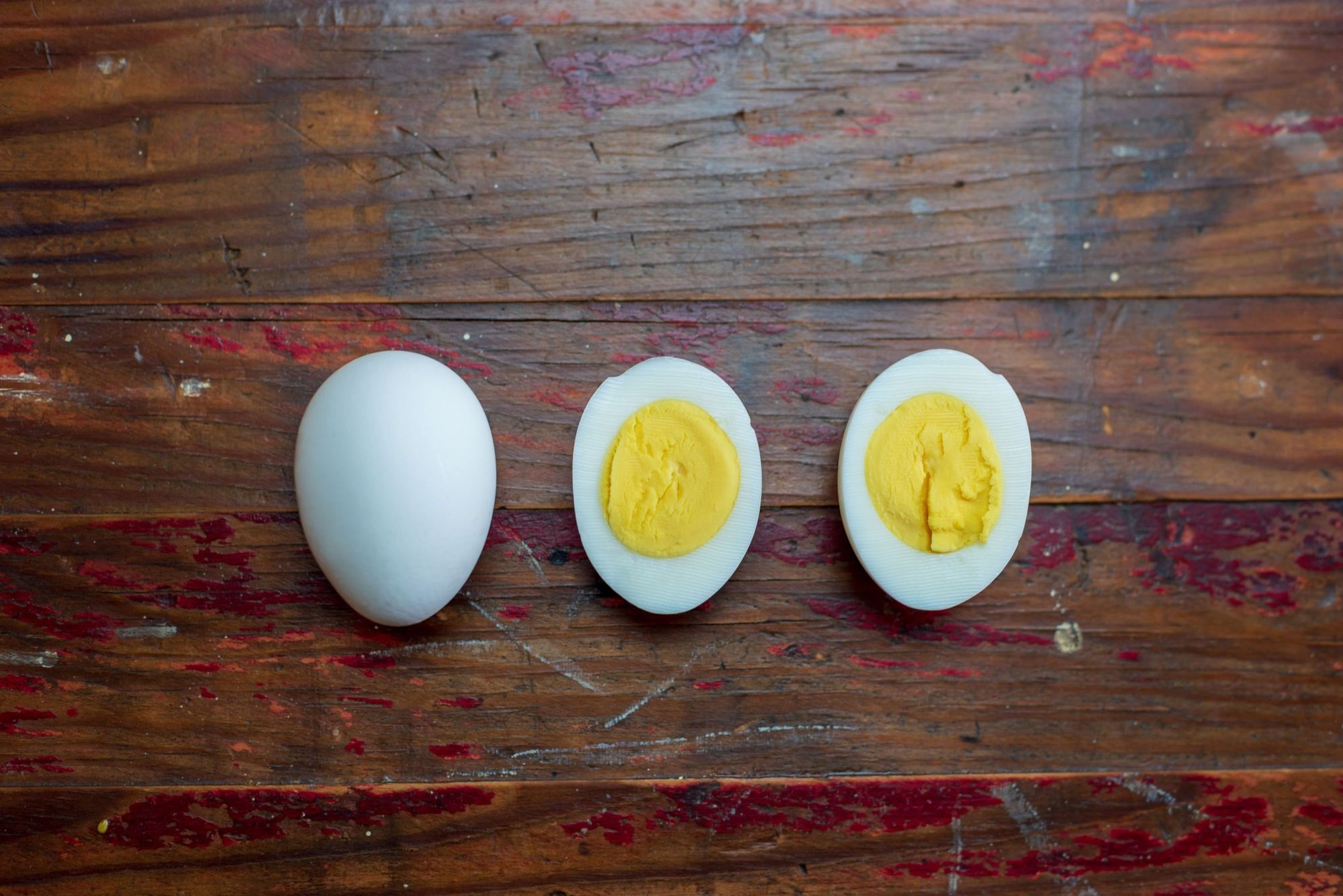
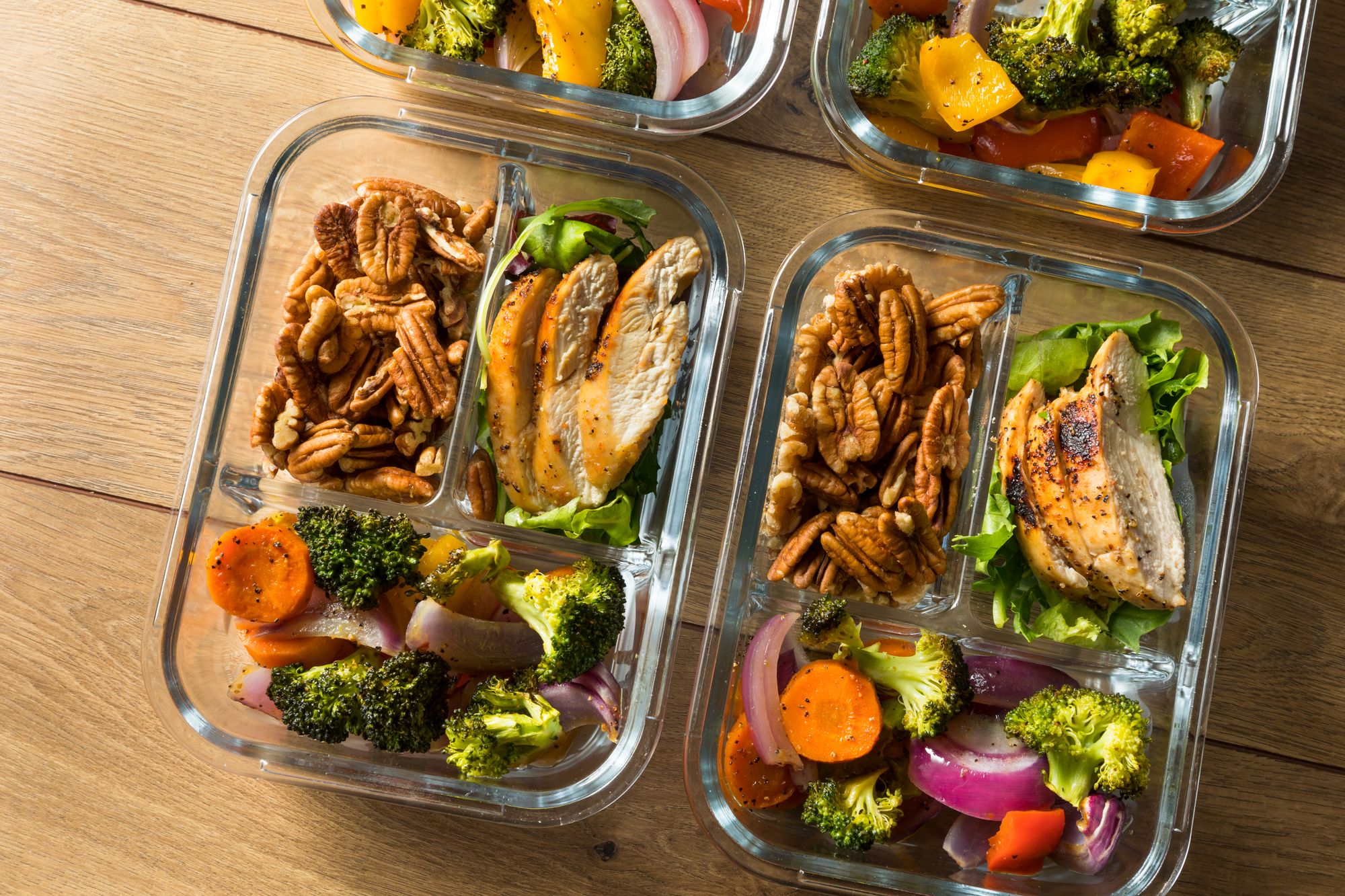
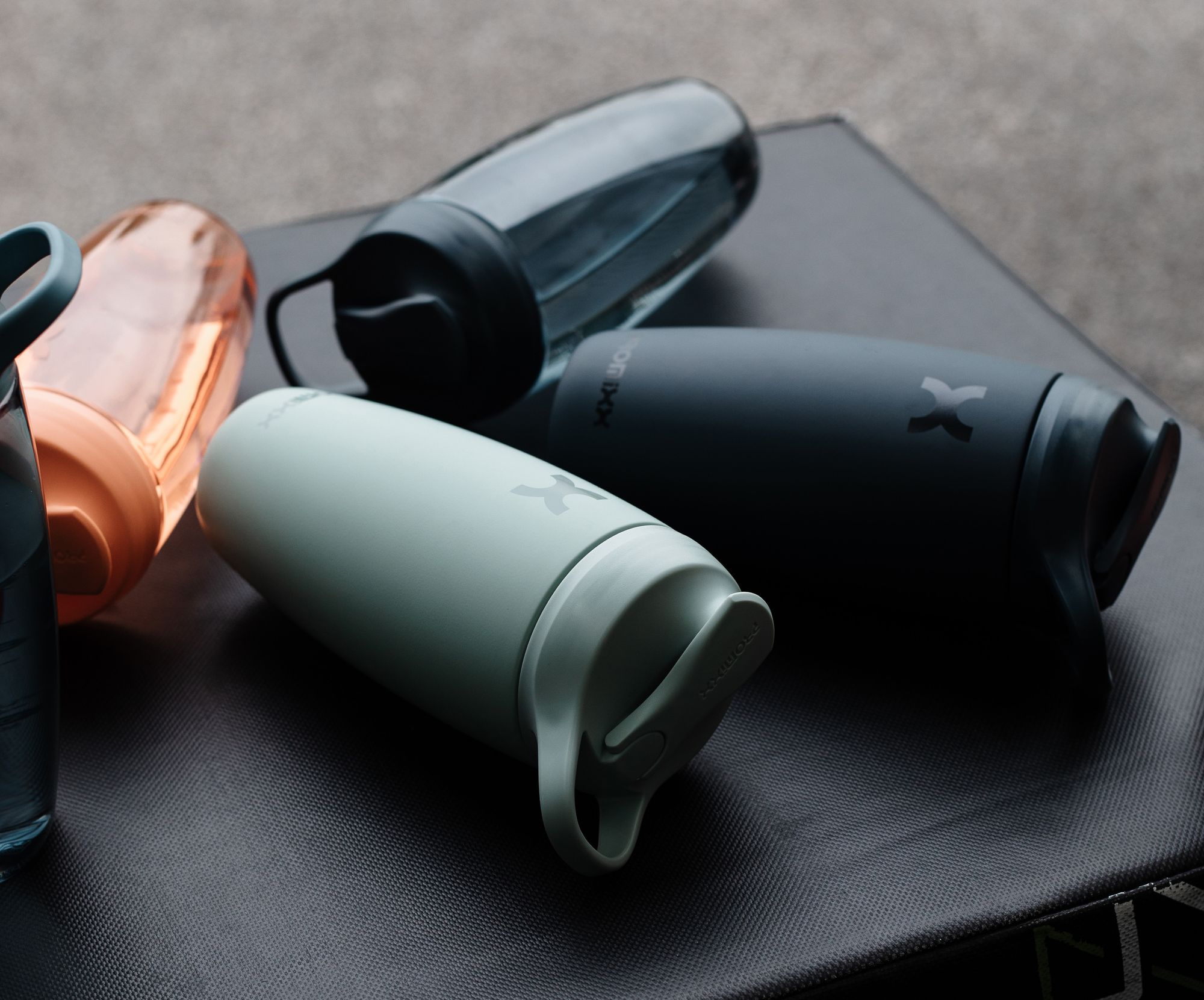
How should you allocate the remaining calories?
Probably this way: 55% to 60% energy-giving carbohydrates and 40% to 45% hormone-balancing fat.
We probably shouldn’t have to mention this, but you should also strive to source your macronutrients from whole, minimally processed foods as much as possible:
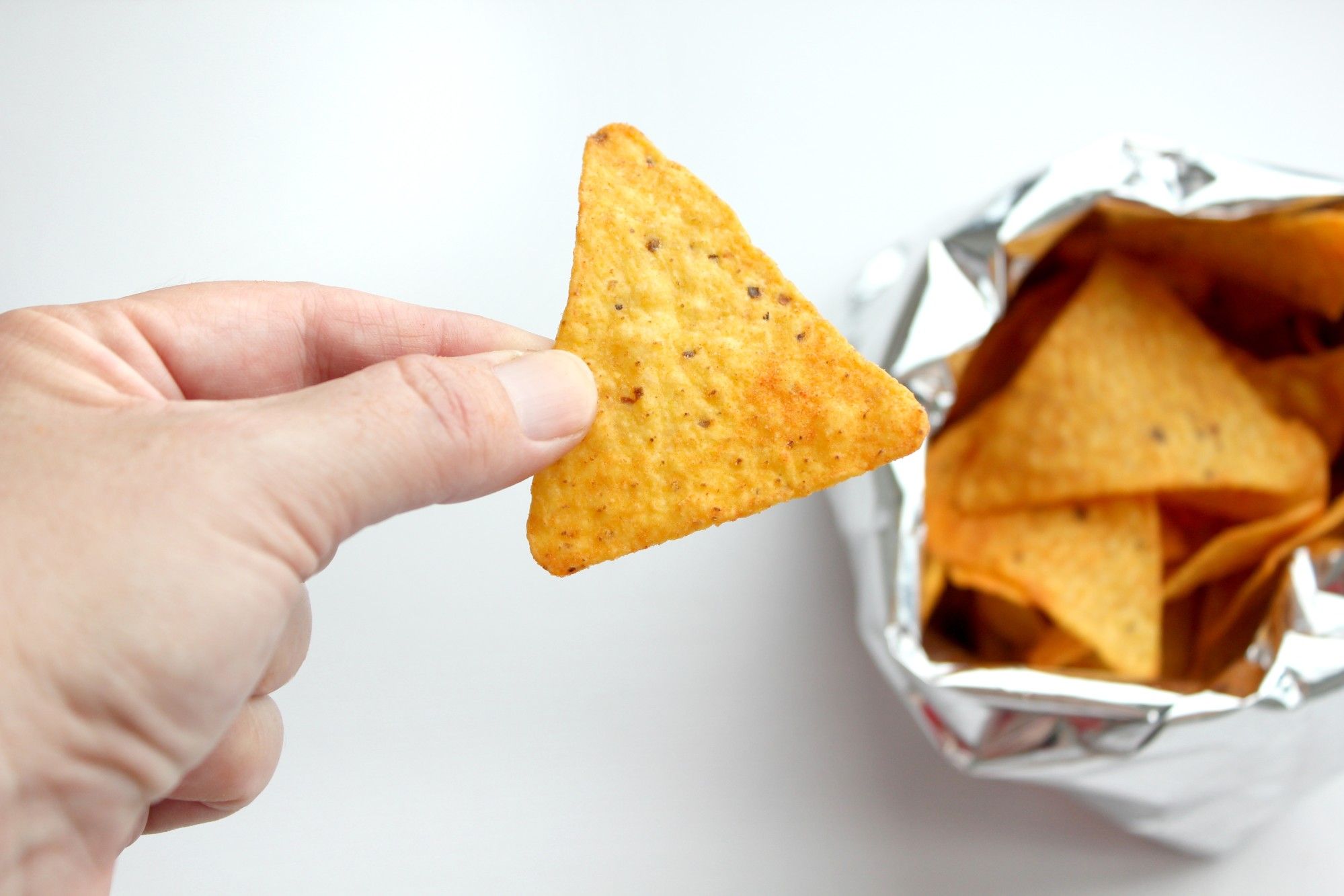
Beyond what you put into your mouth, there’s also the matter of training. Because your muscles simply won’t grow without a good enough reason.
And this is why you should set up your training plan such that you’re:
- Doing the right number of sets and reps for each muscle
- Training with enough intensity
- Resting enough between sessions
- Implementing progressive overload when appropriate
Stay on top of your bulking game with GymStreak
Um, we can hear your mind going into overdrive from here.
Who knew bulking was so tricky? That it didn’t just involve eating as much as you please? If you’re reconsidering your decision, know that the process doesn’t have to feel like you’re walking through fire.
GymStreak (App Store | Google Play) can make bulking feel easy.
Just input your stats, and, in return, you’ll almost instantly receive a personalized training + nutrition plan that’ll have you packing on muscle mass in no time.
Get an exclusive sneak peek of the smart, AI-powered personal trainer app below:
Workout Programming + Nutrition Tracking, Off Your Hands
*sigh of relief* We'll guide you through it all — step-by-step. Just download the app, and you'll be making progress toward your dream body like never before.
References
Garthe, Ina, et al. “Effect of Nutritional Intervention on Body Composition and Performance in Elite Athletes.” European Journal of Sport Science, vol. 13, no. 3, 2013, pp. 295–303. PubMed, https://doi.org/10.1080/17461391.2011.643923.
Helms, Eric R., et al. “Effect of Small and Large Energy Surpluses on Strength, Muscle, and Skinfold Thickness in Resistance-Trained Individuals: A Parallel Groups Design.” Sports Medicine - Open, vol. 9, no. 1, Nov. 2023, p. 102. PubMed, https://doi.org/10.1186/s40798-023-00651-y.
Morton, Robert W., et al. “A Systematic Review, Meta-Analysis and Meta-Regression of the Effect of Protein Supplementation on Resistance Training-Induced Gains in Muscle Mass and Strength in Healthy Adults.” British Journal of Sports Medicine, vol. 52, no. 6, Mar. 2018, pp. 376–84. bjsm.bmj.com, https://doi.org/10.1136/bjsports-2017-097608.
Murphy, Chaise, and Karsten Koehler. “Energy Deficiency Impairs Resistance Training Gains in Lean Mass but Not Strength: A Meta-Analysis and Meta-Regression.” Scandinavian Journal of Medicine & Science in Sports, vol. 32, no. 1, Jan. 2022, pp. 125–37. PubMed, https://doi.org/10.1111/sms.14075.
Roth, Stephen M. “Genetic Aspects of Skeletal Muscle Strength and Mass with Relevance to Sarcopenia.” BoneKEy Reports, vol. 1, Apr. 2012, p. 58. PubMed Central, https://doi.org/10.1038/bonekey.2012.58.
Rozenek, R., et al. “Effects of High-Calorie Supplements on Body Composition and Muscular Strength Following Resistance Training.” The Journal of Sports Medicine and Physical Fitness, vol. 42, no. 3, Sept. 2002, pp. 340–47.


